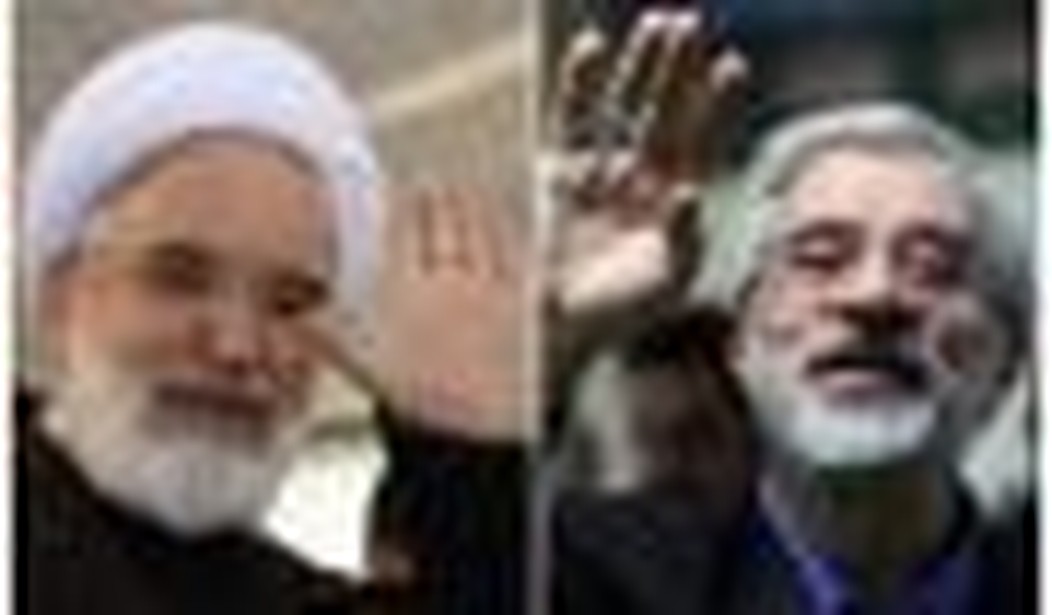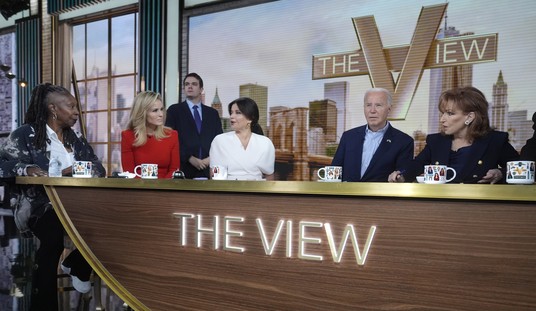The U.S. has just been given the best opportunity to undermine the Iranian regime since the 2009 protests delivered one on a silver platter. The regime was too fearful of the rage of its people to arrest Mir-Hossein Mousavi and Mehdi Karroubi until last month and they remain under strict house arrest, unable to communicate even with family members. This is a golden opportunity for the U.S. to lead the international community in galvanizing the opposition by bringing attention to the protests planned for every Tuesday until they are released.
The fall of Tunisian President Ben Ali, whose rule showed no noticeable sign of impending doom, was triggered by a single self-immolation by a man named Mohamed Bouazizi. The overthrow of Egyptian President Mubarak began immediately thereafter, starting with protests of only dozens of people. Unrest quickly spread throughout the region in countries that had seen nothing like the 2009 protests in Iran. On February 14, thousands of Iranians demonstrated in the streets throughout the country in the biggest protests since 2009.
Shortly thereafter, the regime isolated Mousavi and Karroubi from the outside world and they were reportedly detained sometime during the following week. Some outlets have retracted the reports that they were transferred to a prison, though neighbors claim to have seen Karroubi taken out of his home and his sons have said they entered his empty home. Whatever the case may be, the regime’s delicate handling of the matter shows it understands its potential to become their own “Mohamed Bouazizi” moment. Nobel Peace Prize winner Shirin Ebadi says it is inevitable that an uprising will happen in Iran, saying: “With the slightest breeze, there could be a conflagration.”
Michael Ledeen says that sources close to Mousavi report that he was indeed arrested and his interrogators were trying to force him into confessing that he was receiving foreign help. His unwavering response is said to have been, “You have two choices. You can hang me or shoot me.” He and his wife are now at home again and the lights have turned on at Karroubi’s home as well, indicating the regime decided it was too risky to indefinitely detain or prosecute them and would not win the test of wills. They remain on house arrest and though the opposition is prevented from putting together masses that can win the attention of the media, they vow to keep trying every Tuesday.
The Obama administration reacted to the February 14 protests by voicing their support for the demonstrators and saying the regime should allow freedom of assembly. Later in the month, sanctions were placed on the prosecutor-general and the head of the Basiji. Yet it was silent about the fate of Mousavi and Karroubi when they were reported to be arrested and the planned weekly protests for their release go unaddressed. The regime has long said it would prosecute Mousavi and Karroubi — but only “once public opinion is ready.”
This fear of a backlash should be exploited immediately. The West should be demanding the freedom of the two leaders and all of the political prisoners to give momentum to the opposition. When international attention was focused on the planned stoning of a woman accused of adultery, the regime backed down. When the world marveled at the protests in 2009 and the uprisings in Egypt and Libya, they grew and grew. Don’t underestimate the power of the spotlight.
George Soros, who may be a political lightning rod but is a supporter of the Iranian opposition, predicts the regime’s fall within a year. He says it will be the “bloodiest” of the revolutions in the region and he’s probably right. The security forces of Arab dictatorships know they are protecting a person. The elements of the Iranian Revolutionary Guards that remain loyal to the regime are essentially terrorists who believe they are acting on the orders of Allah. As the civil war in Libya shows, it doesn’t take many evil men to make a hell of a fight.
Fortunately, there are major fissures in the Revolutionary Guards. A letter allegedly written by senior Revolutionary Guards officers last month to their boss has surfaced where they said they would not follow orders to fire upon protesters. The statement, signed by officers in Tehran, Tabriz, Isfahan, and Qom, said the regime’s oppression is un-Islamic. “We promise our people that we will not shoot nor beat our brothers who are seeking to express legitimate protest against the policies and conduct of their leader,” it states. Three guards at Evin Prison, the notorious torture-house for political prisoners, have been arrested for helping detainees get information out.
The West should not be dissuaded from vigorously supporting the Iranian people because we don’t see extraordinary images of hundreds of thousands of protesters like in 2009. The size of these protests is not the best barometer of the opposition’s strength. The regime actually has much less support now than it did then. There is vocal in-fighting inside the regime, plain for all to see when the foreign minister was fired. Now, Rafsanjani is out as the chairman of the Assembly of Experts. The first thing the body did after this development was call for the prosecution of opposition leaders.
The phasing out of subsidies has caused a large amount of scattered, uncoordinated workers’ strikes and alienated the lower class that the regime relies upon for support. The cutting of subsidies and international sanctions are bringing tremendous pain to Iran. The costs of essential goods skyrocketed but price controls prevent many businesses from recouping their losses, putting many out of business, especially in the transportation sector. There is also a massive split between the religious leaders of Iran and the regime. Grand Ayatollah Hossein Khorasani has ruled that convictions based on confessions made while in prison are invalid, implying the use of torture. When Khamenei traveled to Qom to meet with Khorasani, he refused and instead met with the families of political prisoners.
The regime is as fragile as ever and if the revolutions sparked by Mohamed Bouazizi should teach us anything, it’s that even the most stable dictatorships can fall in the blink of an eye when the right match is lit. If the regime believes the arrest or prosecution of Mousavi and Karroubi could be that match, then so should we. Let’s help light it.









Join the conversation as a VIP Member